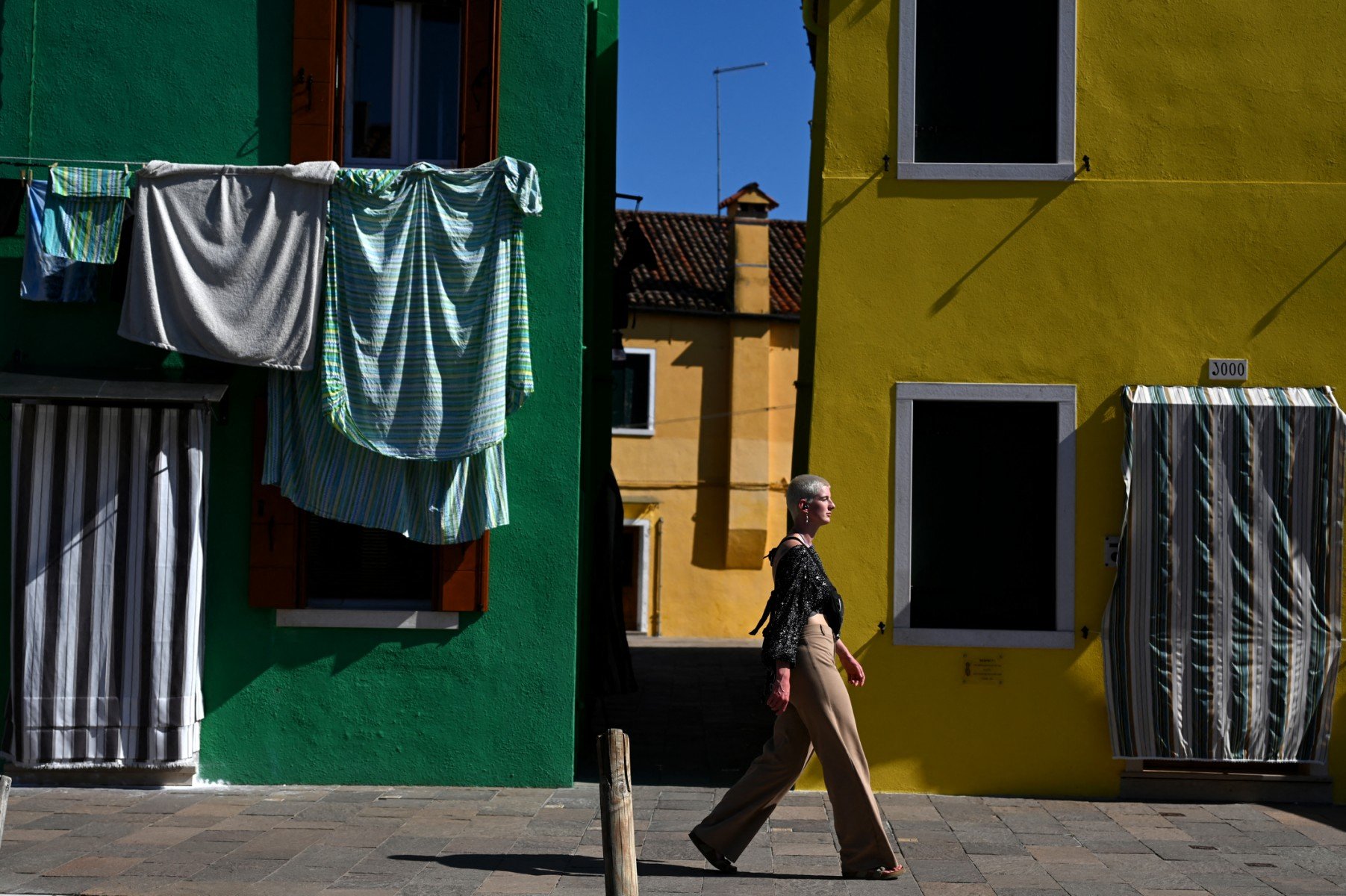Moving to Italy: The best books about Italy and where all the native English speakers live

Moving to Italy, a country infamous for its red tape, can seem like a daunting task. Our newsletter is here to answer your questions - this time we're looking at the best books to read on Italy and the parts of the country with the greatest numbers of English speakers.
Here at The Local we're an international team living in Italy - which means we've either grown up navigating Italian bureaucracy or been through the simultaneously exciting and nerve-wracking process of moving countries.
Our new newsletter is aimed at people who are in the process of moving, have recently moved and are still grappling with the paperwork or perhaps are just thinking about it - and we'll share a regular selection of practical tips. Our team is also available to answer questions from subscribers to The Local.
Sixteen of the best books to read before moving to Italy
Last month, we selected eight of the best English-language books to read if you're considering a move to Italy (or are just interested in Italian history and culture).
Beppe Severgnini's 'La Bella Figura: A Field Guide to the Italian Mind', in which the writer and journalist dispels various idealised myths about Italy, was one; Tim Parks's 1992 classic 'Italian Neighbours', another.
We also asked readers to send in their own recommendations, and enough of you wrote in that we put together another list of reader-recommended books.
Simone in Rome champions veteran Italy foreign correspondent John Hooper's 'The Italians' as "the best single volume on Italian customs and culture there is".
And British writer Eric Newby's memoir 'Love and War in the Appennines', about the author's time as a WWII prisoner of war and eventual escape thanks to the help of local partisans is "a beautiful story", says reader Sam Cross.
Check out the article and please leave a comment below if you have another recommendation to add to the list.

A woman walks past colourful houses in Burano, Venice. Photo by GABRIEL BOUYS / AFP
Which parts of Italy host the most English speakers?
According to the latest data from Italy's national statistics agency, Istat, there are some 51,870 foreigners from anglophone countries living in Italy, amounting to around one percent of the total foreign population - but where do they all live?
Istat data shows that more than half of the country's registered residents from anglophone countries - around 27,760 people - come from the UK, followed by the US (15,580), Ireland (3,660), Canada (2,230), Australia (1,520), South Africa (770) and New Zealand (350).
In terms of cities, Rome attracts the largest number of native English speakers, hosting around 7,000 of them, followed by Milan (4,640) and Florence (2,500).
When it comes to regions, however, Lombardy takes top spot, home to around 9,220 anglophones, followed by Lazio and Tuscany. Basilicata and Molise are the second- and third-least popular regions, with just 188 and 221 English-speaking residents respectively.
In bottom place is France-bordering Valle d'Aosta, home to just 151 anglophones - which comes as little surprise given that the northern region is by far the least populous part of Italy.
Find out more in the article here about where Italy's English-speaking residents live and how your region - or the region you plan to move to - compares.
Questions
The Local's Reader Questions section covers questions our members have asked us and is a treasure trove of useful info on all kinds of practical matters. If you can't find the answer you're looking for, head here to leave us your questions.
Comments
See Also
Here at The Local we're an international team living in Italy - which means we've either grown up navigating Italian bureaucracy or been through the simultaneously exciting and nerve-wracking process of moving countries.
Our new newsletter is aimed at people who are in the process of moving, have recently moved and are still grappling with the paperwork or perhaps are just thinking about it - and we'll share a regular selection of practical tips. Our team is also available to answer questions from subscribers to The Local.
Sixteen of the best books to read before moving to Italy
Last month, we selected eight of the best English-language books to read if you're considering a move to Italy (or are just interested in Italian history and culture).
Beppe Severgnini's 'La Bella Figura: A Field Guide to the Italian Mind', in which the writer and journalist dispels various idealised myths about Italy, was one; Tim Parks's 1992 classic 'Italian Neighbours', another.
We also asked readers to send in their own recommendations, and enough of you wrote in that we put together another list of reader-recommended books.
Simone in Rome champions veteran Italy foreign correspondent John Hooper's 'The Italians' as "the best single volume on Italian customs and culture there is".
And British writer Eric Newby's memoir 'Love and War in the Appennines', about the author's time as a WWII prisoner of war and eventual escape thanks to the help of local partisans is "a beautiful story", says reader Sam Cross.
Check out the article and please leave a comment below if you have another recommendation to add to the list.

Which parts of Italy host the most English speakers?
According to the latest data from Italy's national statistics agency, Istat, there are some 51,870 foreigners from anglophone countries living in Italy, amounting to around one percent of the total foreign population - but where do they all live?
Istat data shows that more than half of the country's registered residents from anglophone countries - around 27,760 people - come from the UK, followed by the US (15,580), Ireland (3,660), Canada (2,230), Australia (1,520), South Africa (770) and New Zealand (350).
In terms of cities, Rome attracts the largest number of native English speakers, hosting around 7,000 of them, followed by Milan (4,640) and Florence (2,500).
When it comes to regions, however, Lombardy takes top spot, home to around 9,220 anglophones, followed by Lazio and Tuscany. Basilicata and Molise are the second- and third-least popular regions, with just 188 and 221 English-speaking residents respectively.
In bottom place is France-bordering Valle d'Aosta, home to just 151 anglophones - which comes as little surprise given that the northern region is by far the least populous part of Italy.
Find out more in the article here about where Italy's English-speaking residents live and how your region - or the region you plan to move to - compares.
Questions
The Local's Reader Questions section covers questions our members have asked us and is a treasure trove of useful info on all kinds of practical matters. If you can't find the answer you're looking for, head here to leave us your questions.
Join the conversation in our comments section below. Share your own views and experience and if you have a question or suggestion for our journalists then email us at [email protected].
Please keep comments civil, constructive and on topic – and make sure to read our terms of use before getting involved.
Please log in here to leave a comment.